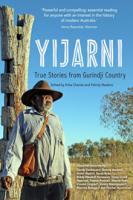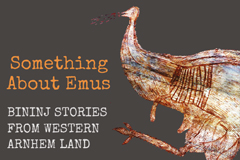
On 23 August 1966, approximately 200 Gurindji stockmen and their families walked off Wave Hill Station in the Northern Territory, protesting against poor working conditions and the taking of their land by pastoralists. Led by Vincent Lingiari, this land-mark action in 1966 precipitated the equal wages case in the pastoral industry and the establishment of the Aboriginal Land Rights (Northern Territory) Act 1976.
While it is well known that the Walk Off was driven by the poor treatment of Aboriginal workers, what is less well known is the previous decades of massacres and killings, stolen children and other abuses by early colonists. Told in both English and Gurindji, these compelling and detailed oral accounts of the events that Gurindji elders either witnessed or heard from their parents and grandparents, will ignite the interest of audiences nationally and internationally and challenge revisionist historians who question the extent of frontier battles and the legitimacy of the Stolen Generations.
Yijarni launch
Yijarni: true stories from Gurindji country was officially launched by Senator Patrick Dodson on Friday 19 August, 2016 at the Freedom Day Festival, a celebration of the 50th anniversary of the Wave Hill Walk-off.
Reviews and endorsements
It is widely acknowledged that the1966 Wave Hill Walk Off — with Vincent Lingiari leading the Gurindji people — was a seminal moment in the history of Aboriginal society’s tragic encounters with the European occupiers of Australia. I highly commend this intimate, heart wrenching, and informative account of one of the single most important events in our recent past. — Peter Garrett, activist, musician and former federal education minister.
Powerful and compelling; essential reading for anyone with an interest in the history of modern Australia. — Henry Reynolds, Historian




